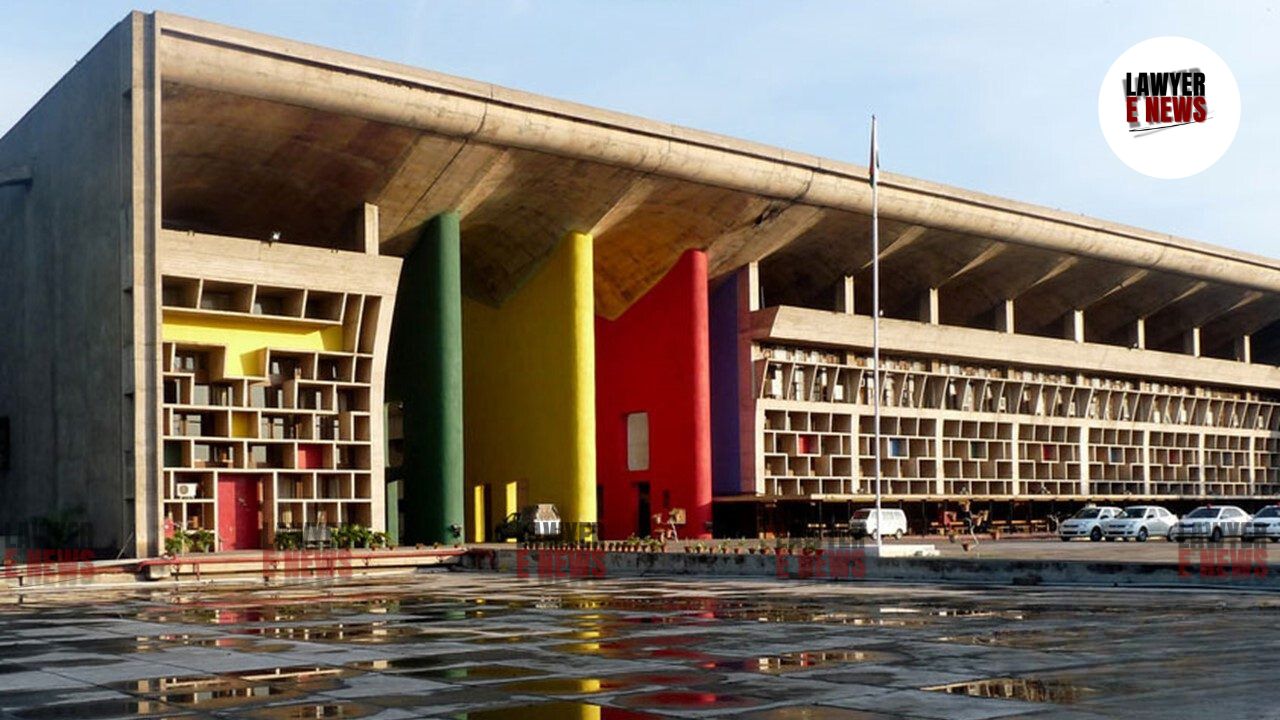-
by sayum
17 February 2026 8:32 AM



Supervisory Jurisdiction Cannot Be Used to Interfere with Trial Court's Discretion. Punjab and Haryana High Court dismissed a petition filed under Article 227 of the Constitution, challenging the trial court's refusal to appoint a Local Commissioner to ascertain the existence of a well on the suit property. The court held that such orders are within the discretion of the trial court and not revisable, as they do not adjudicate the rights of the parties.
In reaffirming the trial court's decision, the High Court emphasized that appointing a Local Commissioner under Order 26 Rule 9 of the CPC is discretionary and cannot be used by parties to gather evidence. The court concluded that the petition was an attempt to delay proceedings.
In the case of Palwinder Singh (deceased) through LRs vs. Surinder Kumar and another, the Punjab and Haryana High Court, presided by Justice Vikas Bahl, dismissed a civil revision petition filed under Article 227 of the Constitution. The petitioner sought to challenge the trial court's order rejecting an application for the appointment of a Local Commissioner under Order 26 Rule 9 of the Code of Civil Procedure (CPC). The petitioner argued that a Local Commissioner was necessary to report on the existence of a well on the suit property, but the trial court dismissed the application, leading to the present revision petition. The High Court upheld the trial court's decision, emphasizing that the appointment of a Local Commissioner is within the court's discretion and cannot be used to collect evidence on behalf of a party.
The case involved a suit for permanent injunction filed by the respondent, Surinder Kumar, seeking to restrain the petitioner, Palwinder Singh (now deceased, represented through his legal representatives), from interfering with the respondent's peaceful possession of the "Haveli" (house) in question. The respondent claimed ownership and possession of the property and alleged that the petitioner had attempted to disrupt their possession by throwing manure pits on the land. The petitioner, in defense, claimed that a well had been dug on the property by the previous owners and sought to prove the well's existence through the appointment of a Local Commissioner.
After the plaintiff concluded his evidence, the petitioner filed an application on April 4, 2024, under Order 26 Rule 9 CPC, requesting the appointment of a Local Commissioner to investigate the existence of the well. The trial court dismissed the application on August 14, 2024, holding that it is the petitioner’s responsibility to provide evidence supporting his claim and that appointing a Local Commissioner would essentially allow the petitioner to gather evidence, which is impermissible.
The central legal issue in the case was whether the trial court's refusal to appoint a Local Commissioner could be challenged under Article 227 of the Constitution. The petitioner argued that the appointment of a Local Commissioner was necessary for fair adjudication, while the respondent contended that the application was an attempt to delay the proceedings.
Discretion under Order 26 Rule 9 of the CPC: The court reiterated that the appointment of a Local Commissioner under Order 26 Rule 9 CPC is discretionary. The provision is not meant to allow parties to gather evidence, but rather to assist the court in ascertaining facts when necessary. The court noted that the petitioner had the opportunity to present evidence on the existence of the well and that the appointment of a Local Commissioner would have been redundant in this case.
Non-Revisable Nature of Orders under Article 227: Citing precedents such as Pritam Singh vs. Sunder Lal (1990) and Harvinder Kaur vs. Godha Ram (1979), the court emphasized that orders refusing the appointment of a Local Commissioner do not decide the rights of the parties and are therefore not revisable under Section 115 CPC or Article 227 of the Constitution. The court held that revisional jurisdiction is not available to re-appreciate facts or correct alleged errors of law unless there is manifest injustice or abuse of discretion.
Supervisory Jurisdiction under Article 227: The court emphasized that supervisory jurisdiction under Article 227 is not to be exercised for correcting mere errors of fact or law unless there is a manifest error or grave injustice. The court found no such error in the trial court's decision, noting that the application for the Local Commissioner appeared to be a strategy to delay the suit.
No Right to Appoint a Local Commissioner: The court reiterated that Order 26 Rule 9 CPC does not confer any right on a party to demand the appointment of a Local Commissioner. Instead, it is an enabling provision that gives the court discretion to order a local investigation if it deems necessary for elucidating a matter in dispute. The trial court found that the petitioner’s request was not justified and dismissed the application accordingly.
No Revisional Jurisdiction: Relying on multiple precedents, including Smt. Ulfat vs. Hardeep Singh (2011) and Sumer Chand Jain vs. Vishnu Bhagwan Mangla (2006), the court held that orders rejecting applications for Local Commissioners are not revisable, as they do not affect the substantive rights of the parties.
Absence of Injustice or Arbitrariness: The court found no evidence of injustice or arbitrariness in the trial court’s decision. The trial court had correctly observed that it is the responsibility of the defendant-petitioner to provide evidence for his claims, and appointing a Local Commissioner to prove the existence of the well would amount to the court collecting evidence on the petitioner’s behalf, which is impermissible.
The High Court dismissed the petition, holding that the trial court’s order was within its discretion and did not result in any manifest error or injustice. The court reaffirmed that supervisory jurisdiction under Article 227 should not be exercised to interfere with the trial court’s discretionary decisions, particularly when they involve procedural matters like the appointment of a Local Commissioner.
Date of decision: September 19, 2024
